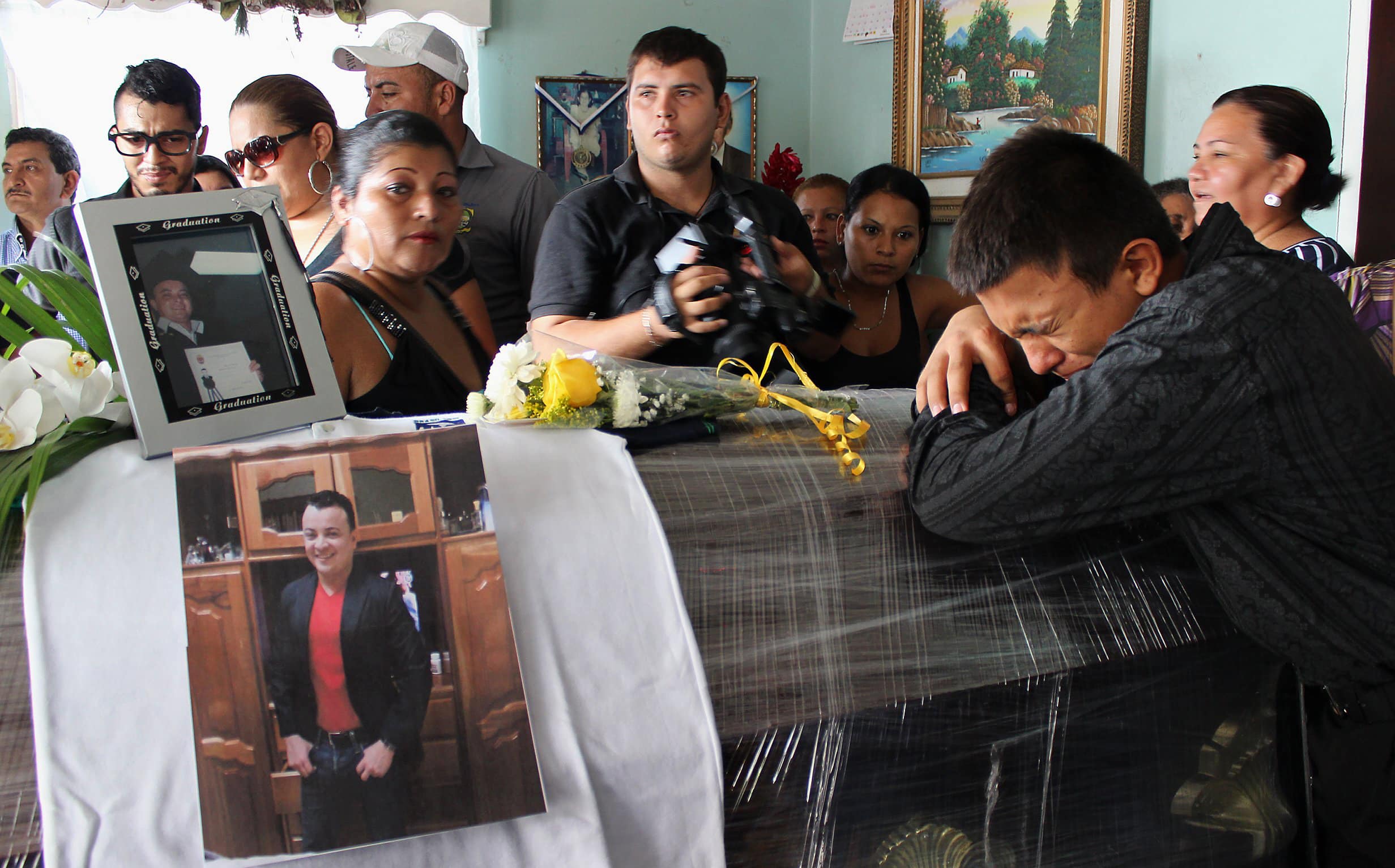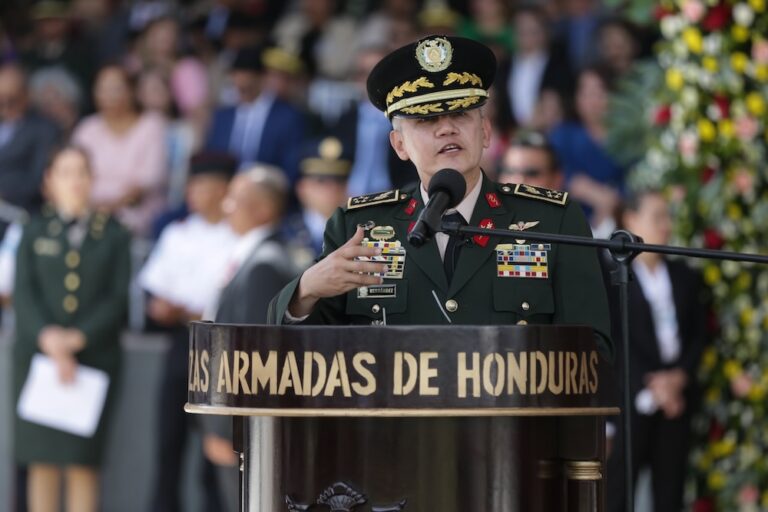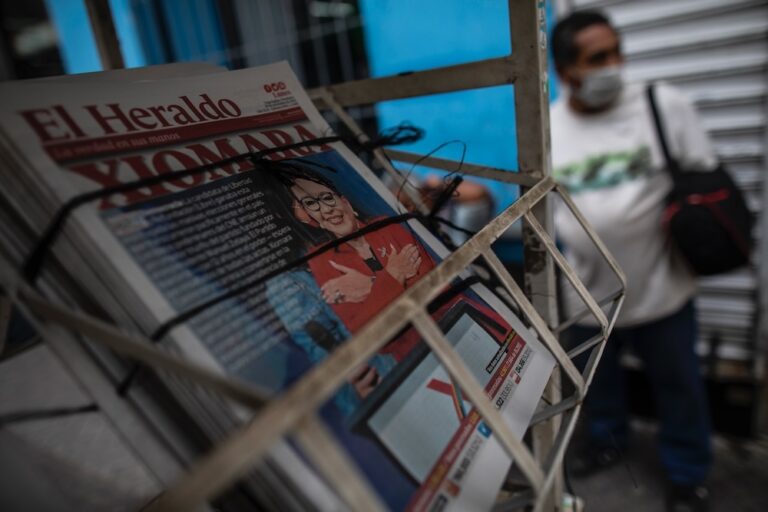“Nine journalists slain in Honduras in the first seven months of this year – almost as many as in the entire year following the June 2009 coup d’état. This makes a mockery of the government’s promises to protect this vulnerable group,” said Marian Botsford Fraser, Chair of the Writers in Prison Committee of PEN International.
This statement was originally published on pen-international.org on 30 July 2015.
The Honduran government must honour and make a reality its promises to protect journalists and combat impunity for crimes against them, PEN International said today.
According to PEN’s information, six journalists have been murdered since the Honduran government’s appearance at the United Nations in Geneva in early May 2015 to defend its human rights record, where it repeated pledges first made in 2010 to protect journalists from targeted attacks and curb impunity for such crimes. This brings the total number of journalists killed in the country this year alone to nine – more than in the whole of 2014, which saw seven murders.
A total of 54 journalists have been killed in Honduras since 2003, according to PEN’s information. Convictions have been obtained in only four of these cases – an impunity rate of 93 per cent. Even in cases with convictions, justice is only partial and none of the masterminds have been prosecuted.
“Nine journalists slain in Honduras in the first seven months of this year – almost as many as in the entire year following the June 2009 coup d’état. This makes a mockery of the government’s promises to protect this vulnerable group,” said Marian Botsford Fraser, Chair of the Writers in Prison Committee of PEN International.
“The Honduran state must to more to protect its journalists and break the cycle of impunity that enables these crimes. It must carry out swift and impartial investigations into all murders of journalists, and bring the perpetrators to justice immediately.”
Twenty-three year-old Franklin Johan Dubón, a blind radio presenter, was reported missing by his family after he failed to return home on 12 May 2014. His body was found the following day on the banks of Sula River in Mezapa, Yoro department. Wounds on his body indicate that he was attacked with machetes and beaten with stones. Dubón presented a music programme for Radio Sulaco as well as another in which he performed his own songs about daily struggles in the country. According to local news reports, he had received anonymous threats and been attacked in the months leading up to his death. According to local news reports, the principal suspect was found dead on 26 May, his body disposed of in several plastic bags. It is unclear if the investigation continues.
June and July have proven particularly deadly months, with five journalists killed in this period, according to PEN’s information, three of them in the space of a week.
On 22 June 2015, Juan Carlos Cruz Andara – a news presenter for Canal Teleport and LGBTQI activist – was reportedly killed in Puerto Cortés, Atlántida department. His body was discovered lying on his bed at his home. Cruz, aged 51, had been stabbed to the neck and thorax at least 15 times. An investigation is thought to be being conducted by the National Crime Investigation Agency (Dirección Nacional de Investigación Criminal – DNIC), who have not yet identified a clear motive. The authorities believe that the perpetrator stole Cruz’ car and several electrical items from the house.
Just three days later, Jacobo Montoya Ramírez, a 52 year-old radio and TV journalist, was reportedly gunned down by suspected contract killers in his hometown of Ruinas, Copán department, on 25 June 2015. According to Reporters Without Borders, witnesses at the scene say that the gunman shot him once at his front door and then proceeded to follow him inside while his mother looked on.
Both journalists had reportedly received anonymous threats in the months leading up to their deaths.
Meanwhile, only three days after Montoya’s murder, Deibi Adalí Rodríguez – a 22-year-old cameraman for Canal 13 Telemas – was shot dead close to his home in La Entrada, Copán department, on 28 June 2015. The killing took place in the midst of protests against corruption in Honduras, according to the Honduran free expression group C-Libre. No motive has yet been identified for the murder; his family have indicated that he had no known enemies.
On 4 July 2015, Joel Aquiles Torres, the owner of Canal 67 television station and a local cable system was reportedly fired upon at least 29 times by two assailants on a motorcycle as he was in his car in Taulabé, department of Comayagua. While Aquiles lived in San Pedro Sula he is reported to have travelled regularly to Taulabé. Local news reports suggest that his murder was a contract killing.
Most recently, on 22 July 2015, PEN received reports of the murder of Adelmo Arturo Cortez Milla, a radio presenter for Galaxia 21, who was shot dead as he returned home from a shift at the radio station. An initial investigation is thought to be underway, with police officers seeking witnesses to the crime. Cortez had not reported receiving any threats prior to his death.
This panorama is in stark contrast to the picture the Honduran government presents to the international community. On 8 May 2015, Honduras expressed its support for 23 recommendations relating to the need to do more to protect journalists from targeted violence and ensure justice for crimes committed against them, including murders, as well as the need to guarantee the right to freedom of expression more broadly. Such recommendations accounted for 15 per cent of the total 152 made to Honduras by other states at the second review of its human rights record under the UN’s Universal Periodic Review mechanism.
On 15 June 2015 a law to protect journalists, social communicators, human rights defenders and legal practitioners came into effect in Honduras, after two years in the pipeline. While PEN views this as a positive step, the official protection mechanism established by this law can only be meaningfully implemented if it is allocated sufficient financial, human and technical resources and includes full participation by journalists and other representative civil society bodies.
Moreover, no protection mechanism can improve security if impunity for attacks on journalists is allowed to persist. The Honduran state must do more to protect journalists working in the country and must ensure that swift and thorough investigations are conducted.
At the UPR in May, the Honduran state also committed to considering decriminalizing defamation by the time the Human Rights Council meets to approve the review in September 2015, as well as signing and ratifying a protocol that would allow Hondurans to bring complaints to the UN if they believe their economic, social and cultural rights have been violated.



